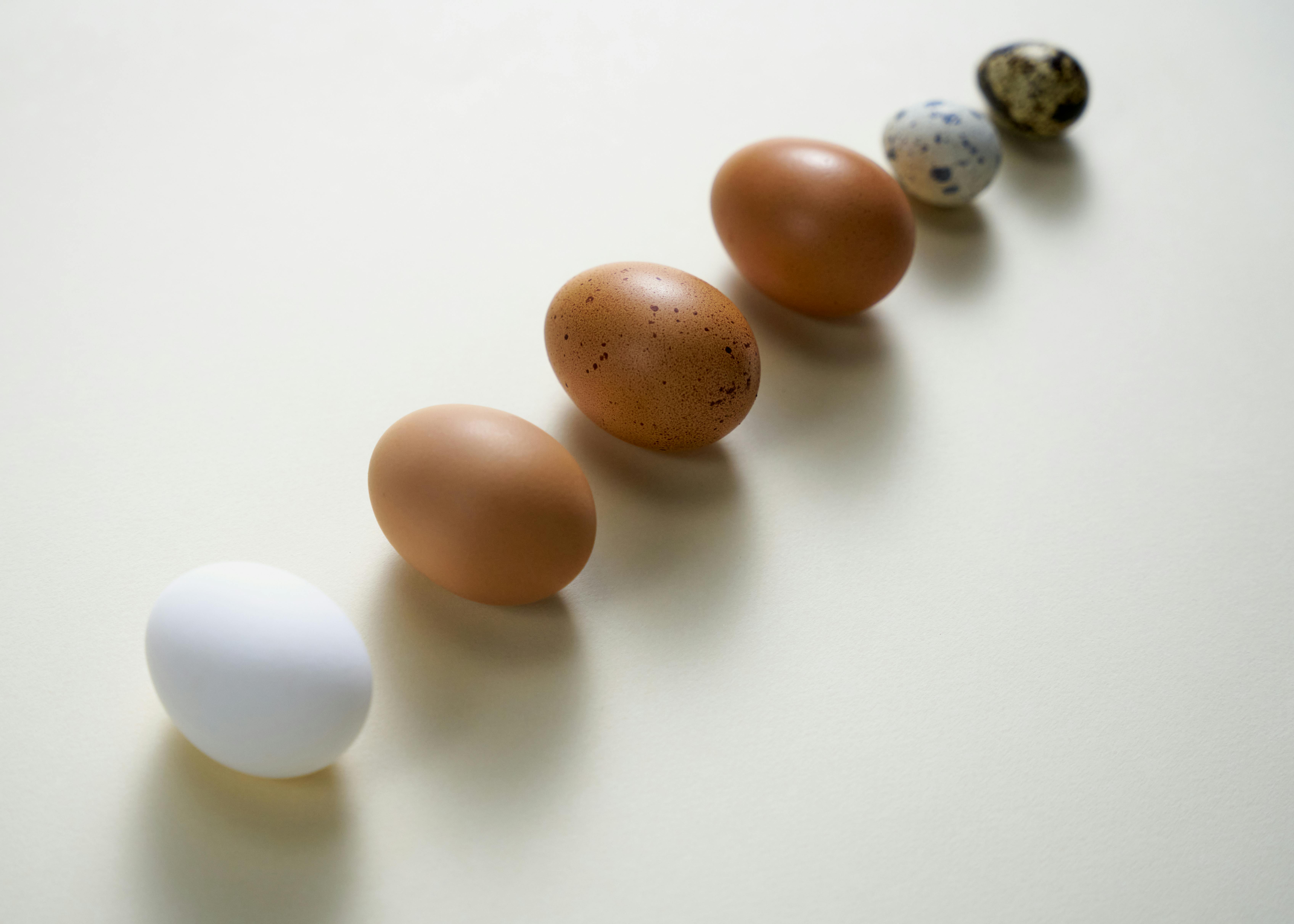Chicken Eggs vs Duck Eggs

Strong 8k brings an ultra-HD IPTV experience to your living room and your pocket.
Eggs are a staple in many diets worldwide, but not all eggs are created equal. While chicken eggs are the most commonly consumed, duck eggs offer unique characteristics that might make them a preferable choice for some. This article delves into the differences between chicken and duck eggs, covering aspects such as size, nutritional content, taste, culinary uses, and more.
Size and Appearance
Chicken Eggs: Typically weigh about 2 ounces and come in colors like white and brown, depending on the breed.
Duck Eggs: Larger, averaging around 3.5 ounces, with thicker shells that can be white, brown, green, or even speckled. The thicker shell contributes to a longer shelf life.
THE SPRUCE EATS
Nutritional Content
Calories and Macronutrients:
Chicken Egg: Approximately 72 calories, 6 grams of protein, 5 grams of fat.
Duck Egg: Around 130 calories, 9 grams of protein, 9.6 grams of fat.
Cholesterol:
Chicken Egg: About 186 milligrams.
Duck Egg: Significantly higher at 660 milligrams.
THE SPRUCE EATS
Vitamins and Minerals:
Duck eggs contain higher amounts of vitamins A, D, and E, as well as omega-3 fatty acids, compared to chicken eggs.
Taste and Texture
Chicken Eggs: Mild flavor with a balanced yolk-to-white ratio.
Duck Eggs: Richer and creamier taste due to a larger yolk and higher fat content, making them a favorite among bakers for their ability to produce fluffier and moister baked goods.
STRONG ANIMALS
Culinary Uses
Baking:
Duck Eggs: Higher protein and fat content can enhance the structure and richness of baked goods. However, adjustments in recipes may be necessary due to their size and composition.
GRUBBLY FARMS
Cooking:
Both types can be used interchangeably in dishes like omelets, scrambles, and poached eggs, but cooking times may vary due to size differences.
Allergies and Dietary Considerations
Some individuals allergic to chicken eggs may tolerate duck eggs, as they contain different proteins. However, it's essential to consult with a healthcare professional before making any dietary changes.
FRESH EGGS DAILY
Availability and Cost
Chicken Eggs: Widely available and generally more affordable.
Duck Eggs: Less common, often found at farmers' markets or specialty stores, and tend to be more expensive due to limited production.
Shelf Life and Storage
Chicken Eggs: Thinner shells make them more susceptible to contamination; refrigeration is recommended.
Duck Eggs: Thicker shells and a natural waxy coating provide a longer shelf life, even without refrigeration. However, once washed, they should be refrigerated.
STRONG ANIMALS
Environmental and Ethical Considerations
Duck Farming: Ducks are efficient foragers and can contribute to pest control in agricultural settings. They also tend to be more resilient to certain diseases compared to chickens.
THE SPRUCE
Chicken Farming: The ethical implications vary depending on farming practices, with concerns often raised about factory farming conditions.
Conclusion
Both chicken and duck eggs offer unique benefits and can be incorporated into a balanced diet. Duck eggs provide a richer taste and higher nutritional content, making them suitable for specific culinary applications, especially in baking. However, they come with higher cholesterol levels and cost considerations. Understanding these differences can help you make informed choices based on your health needs, culinary preferences, and ethical considerations.
Incorporating Wholesale Pasture-Raised Eggs
For those interested in sourcing high-quality eggs, considering wholesale pasture-raised eggs can be a beneficial choice. Pasture-raised eggs, whether from chickens or ducks, often contain higher nutrient levels and are produced under more humane farming practices. Purchasing them wholesale ensures a consistent supply for culinary needs, whether for home use, restaurants, or bakeries.
By understanding the distinctions between chicken and duck eggs, you can select the option that best aligns with your dietary preferences and nutritional requirements.
Note: IndiBlogHub features both user-submitted and editorial content. We do not verify third-party contributions. Read our Disclaimer and Privacy Policyfor details.


